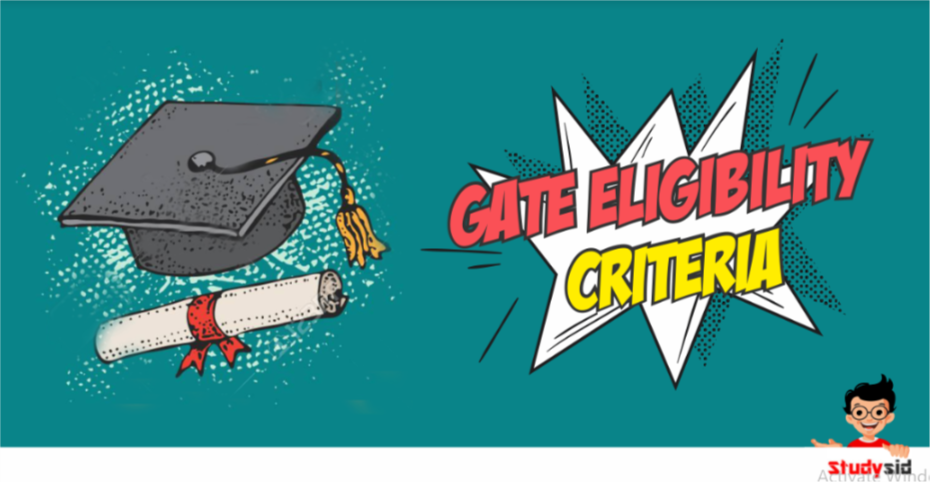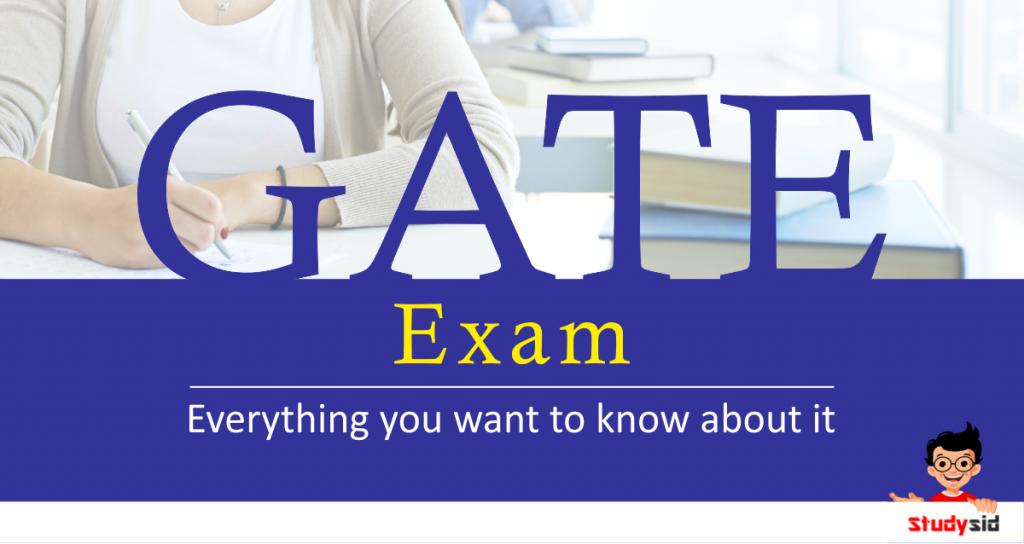About GATE
Graduate Aptitude Test in Engineering also known as GATE is a national level examination, which is conducted jointly by the seven Indian Institute of Technology (Delhi, Kanpur, Mumbai, Kharagpur, Roorkee, Madras,Guwahati) and Indian Institute of Science, Bengaluru. This exam aims to test the candidate’s ability in Engineering & Technology /Science/Architecture subjects in compendious manner. The performance of a candidate is reflected in the form of a GATE score, which is calculated on basis of relative performance. Most of the institutes, funded by MHRD, consider GATE Score for admission in post graduate programs in various disciplines in accordance with the candidate’s exam subject code.
Eligibility criteria:
The one who has the following degree can apply:
| Degree | Examination | Year of Qualification cannot be later than |
| B.E/B.Tech/B.Pharm | Bachelor’s degree holders in Engineering/ Technology (4-years after 10+2 or 3 years after Diploma in Engineering/Technology) and those who are in the final year of such programs | 2019 |
| B.Arch | Bachelor’s degree holders of Architecture (Five years course) | 2019 |
| B.Sc (Research)/B.S | Bachelor’s degree in Science (Post-Diploma/4 years after 10+2) | 2019 |
| M.Sc/MA/MCA or equivalent | Master’s degree in any of the stream Science/Mathematics/Statistics/Computer Applications or equivalent | 2019 |
| Int. M.E/M.Tech (Post-B.Sc) | Post-BSc Integrated Master’s degree programs in Engineering/Technology (Four year program) | 2021 |
| Int. M.E/M.Tech or Dual Degree (after Diploma or 10+2) | Integrated Master’s degree program or Dual Degree program in Engineering / Technology (Five year program) | 2020 |
| Int. M.Sc/Int. B.S-M.S | Integrated M.Sc. or Five year integrated B.S.- M.S. program | 2019 |
| Professional Society Examinations (equivalent to B.E/B.Tech/B.Arch) | B.E/B.Tech/B.Arch equivalent examinations of Professional Societies, recognized by MHRD/UPSC/AICTE (e.g., AMIE by Institution of Engineers-India, AMICE by the Institute of Civil Engineers India) | NA |
GATE Registration:
- Candidates must apply online only – through GOAPS (GATE Online Application Processing System).
- Candidate has to upload the certificate from the principal, scanned signature and photograph.
- The application fee payment can be processed either through net banking or debit card or e-challan.
Application Fee:
The fee structure is as follows:
- For women/SC/ST/PWD – Rs 750/-
- Other Candidates – Rs 1500/-
GATE Exam pattern:
- The GATE exam consists of only one paper which is of 100 marks.
- There are 65 questions asked in a GATE paper which are of objective type and numerical answer type (NAT).
- These 65 questions consists of 10 questions which are being asked from the general aptitude section and carry 15 marks.
- Duration: The time allotted to solve the question paper will be 3 hours.
- Mode: Online Computer Based Test (CBT).
- Answering: There is no choice provided for NAT questions as the answers of such questions will be entered manually using the virtual keyboard provided on the computer screen at the time of examination.
Number of attempts:
There is no limitation of number of allowed attempts in GATE. You can attempt it as many no. of times.
Theoretically the above statement is true but if you see practically then, age plays an important role for attempting GATE. If you are appearing GATE then there comes two possibilities; Either you will go for higher studies or you will try to use the score for getting a job in some PSU like NTPC, BHEL, IOCL etc. You can surely attempt GATE 15 times but someday you will have the situation that you won’t be able to use GATE score for higher studies or job because of your age not fulfilling the criteria of job or admission in higher degree courses. If your query is regarding 2-3 attempts then please don’t panic.
You can attempt it as many times but keep in mind that you achieve the GATE score as early as possible. 2-3 years are sufficient to score enough in GATE to get admission in M.Tech. at IITs or to get job in the related PSUs


